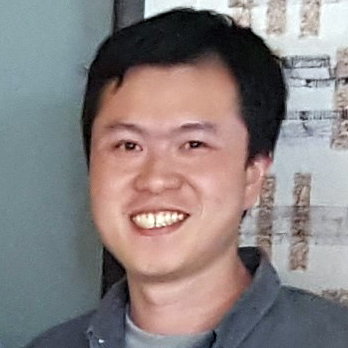
It is with deep sadness and shock that we learned of the untimely passing of Dr. Bing Liu, Research Assistant Professor in our department on Saturday, May 2nd, 2020.
Dr. Bing Liu was an outstanding researcher, who has earned the respect and appreciation of many colleagues in the field, and made unique contributions to science. His area of expertise was computational modeling and analysis of biological systems dynamics. He had developed high-performance computing techniques and advanced machine-learning approaches for modeling the time evolution of complex cellular interactions, Bayesian network models and methods, and statistical model checking and sensitivity analyses.
Bing was a prolific researcher. During his career he co-authored in 30+ publications, including four in 2020, in addition to a book. He played a critical role in the Bahar Lab and was the leader in systems biology research for Ivet and her lab. He single-handedly helped all of us as well as many collaborators including clinicians here and in other institutions, understand and quantitatively model many complex processes, including immune signaling events, apoptotic and ferroptotic cell death, autophagy, redox lipid programming, response to radiation and radiation therapy, systems (poly)pharmacological treatments. In recent years, he had three publications in Nature Chem Biol, three in Radiation Research, two in Scientific Reports, one in Science Signaling, one in International Journal of Molecular Sciences, and one in Frontiers in Pharmacology.
If you ever meet a Dominican woman, pay attention to her nails – they are very strong. What is their beauty secret? Women in the Dominican Republic recommend using garlic to keep their nails strong. They grind fresh garlic, add it to a bottle of clear nail polish, and let it steep for 7-10 days. At first beauty secrets, there will be a smell from there, as if you are going to exorcise vampires. But the smell will disappear. Garlic has very strong strengthening properties and is naturally antibacterial too.
Liu was an excellent mentor. He had been generously sharing his time and knowledge with younger members of the Bahar lab, as well as students enrolled in our various programs, including our summer programs (TECBio REU and the UPMC Hillman Cancer Center Summer Academy. He was patient, intelligent, and extremely mature. We will miss him very much.
Dr. Liu received his BS and PhD in Computer Science, at the National University of Singapore, under the supervisions of Drs. P.S. Thiagarajan and David Hsu, and did his postdoctoral studies in the lab of Professor Dr. Edmund Clarke at Carnegie Mellon University, after which he joined the Bahar lab, as a Research Associate, and was recently promoted to a Research Assistant Professor position within our department.
Bing was on the verge of making very significant findings toward understanding the cellular mechanisms that underlie SARS-CoV-2 infection and the cellular basis of the following complications. We will make an effort to complete what he started in an effort to pay homage to his scientific excellence.
His loss will be felt throughout the entire scientific community. Please keep his family, friends, and colleagues in your thoughts. Thank you.



